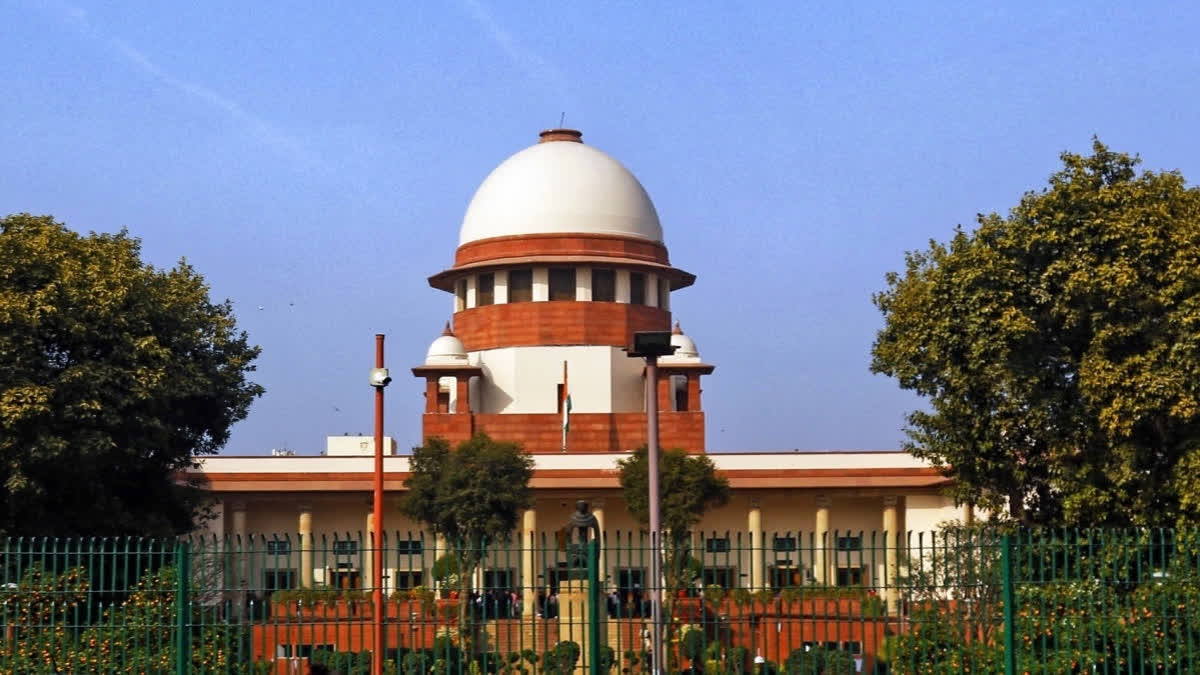New Delhi:The Supreme Court on Friday said anti-air pollution GRAP-4 restrictions will remain in force for Delhi-NCR for the next 72 hours, as it will consider on November 25 whether or not to ease these restrictions against the backdrop of improvement in the air quality index (AQI) levels.
The matter was heard by a bench comprising justices Abhay S Oka and Augustine George Masih. The bench expressed displeasure over the poor implementation of GRAP-4 restrictions, especially related to restricting the entry of trucks carrying non-essential goods into Delhi.
The bench pulled up the Delhi government for failing to ensure that trucks registered outside the state do not enter the capital. A petitioner’s counsel informed the bench that truck drivers usually pay bribes to gain entry into the capital.
The apex court said that there should be a complete ban on entry of trucks, registered outside Delhi, strictly at all 113 entry points. The bench was informed that checking only happened at 13 main points, and the trucks entered through the remaining 110 points.
"Tell us how you (the Delhi government) are stopping the entry of trucks. We want a team of experts to monitor the entry of trucks into the NCR and then we will take a call”, said the bench. The apex court directed the Centre and the Delhi Police to ensure the setting up of check posts at all 113 entry points and also install CCTV cameras at these points.
The bench appointed 13 Supreme Court lawyers as court commissioners to visit the various entry points in Delhi to ascertain whether restrictions on the entry of trucks were implemented or not.
The bench said it will consider on Monday whether GRAP-4 is brought down to GRAP-2. Under stage two of the GRAP or the Graded Response Action Plan, there will be restrictions on the use of coal and firewood as well as diesel generator sets in the Delhi-National Capital Region (NCR). Stage 4 of the GRAP is implemented when the AQI in Delhi reaches the severe-plus category, which is when it crosses 450.
The measures undertaken under GRAP-4 are: entry of trucks into Delhi is stopped, a ban on construction and demolition activities for linear public projects such as highways, roads, flyovers, overbridges, power transmission, pipelines, telecommunication etc, the government can discontinue physical classes, including for Classes Vl - lX and Class Xl, etc.,
Today, the apex court said it is very well aware of the consequences of GRAP-4, which are serious as they affect various sectors. Additional solicitor general Aishwarya Bhati, representing the Centre, said that the pollution level has dropped in the last two days and the AQI level was now under the GRAP-2 stage.
The bench was informed that due to its direction, GRAP-4 has not been withdrawn. The counsel said to withdraw GRAP-4, the court’s permission is required and added, “We haven’t withdrawn GRAP-4”. "The consequences of GRAP-4 are drastic and it will have adverse effects on several sections of the society," said the bench.
"What we are suggesting is this... (next) Monday we will examine compliance (of the court order by the Delhi government)... and then we will consider whether to bring it down from GRAP-IV to GRAP-II”, said the bench.
The apex court on November 18, had directed all Delhi-NCR states to immediately set up teams to strictly enforce anti-pollution GRAP 4 restrictions, making it clear that the curbs would continue till further orders. The apex court was hearing a matter connected with air pollution in Delhi-NCR.
